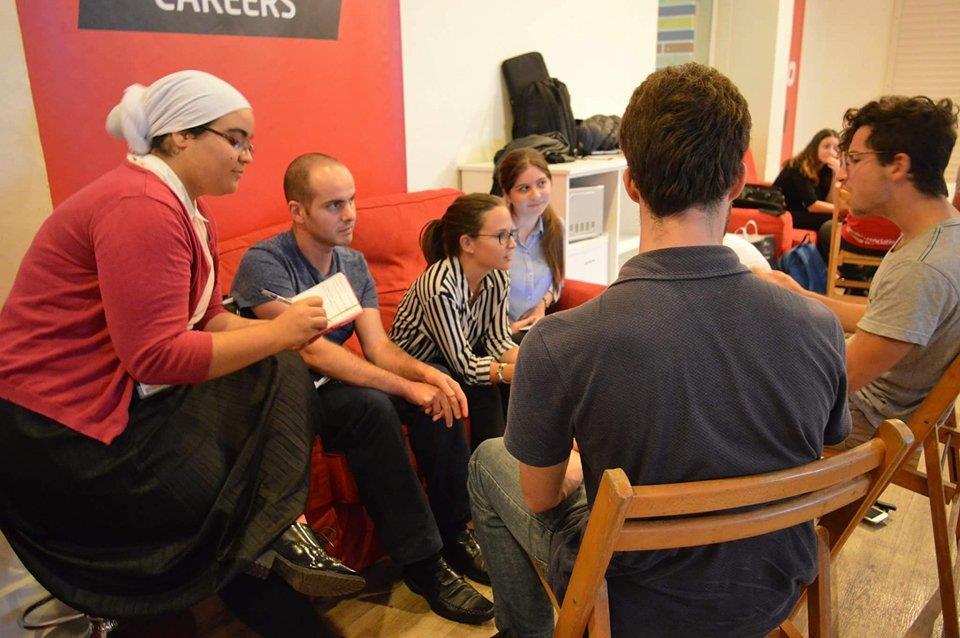By Jeanine Dalli
The Difference Between Thinking and Overthinking
Constructive thinking has positive implications on one’s health, such as recovery, and uptake of health promoting behaviours. Overthinking (also known as rumination) is an unproductive way to process thoughts, with unconstructive consequences such as depression, anxiety and difficulties in physical health, since the brain is not able to think of a solution to the problem (1). Even though overthinking is generally associated as a symptom of anxiety and depression, everyone experiences this phenomenon one day or another, and this does not mean that everyone is anxious or depressed. It just means that everyone might have something heavy on their mind at times.
Why do we overthink?
If you’re an overthinker, you’ve probably overthought about why you overthink. Therefore, the real question is, why do we overthink in the first place and what causes this? Overthinking is an automatic self-protection mechanism, to protect ourselves against getting hurt or be put in situations that we do not want to be in. This makes sense, since no one overthinks on purpose, but it comes naturally. Our brain does this because it likes to think that we are in control of certain situations, however sometimes our brain thinks that there is more to what we can actually control. Our brain thinks of the most negative situations to be prepared for what it thinks is coming (2). What our brain fails to recognize is that sometimes we cannot control it all, so it keeps thinking and thinking, until it ultimately becomes tiring and takes a toll on our well-being.
Overthinking the Past, the Present, and the Future
Overthinking the past
Overthinking the past might be a coping mechanism to deal with regret, or it might even be a way to deal with PTSD. Normally people ask themselves what they could have done to avoid the hurtful situation, even if in reality things would have been out of the person’s control (3).
Overthinking the present
Overthinking the present might serve as self-reflection or evaluating relations with other people and how you present yourself to others. This might be beneficial to a certain degree, in case you think that you need to change something about your relationship, or about how you interact with people (4).
Overthinking the future
Overthinking the future is associated with worrying, hopelessness and fear of failure. Short-term worrying is normal, such as thinking of an upcoming presentation, interview, or exam (5). However, long-term concerns such as worrying about future relationships which will not help you in that present moment can be problematic, since some people can experience an existential crisis.
An existential crisis is when one asks themselves personal questions about their purpose of life, or the fear of realizing that they have not reached their full potential at the end of life, making them feel like a failure.
When does overthinking become problematic?
Overthinking becomes unhelpful and problematic when it interferes in one’s ability to enjoy the moment, for example, not being able to enjoy a family lunch because of the persistent thought of what happened last week at work. Some people also find it difficult to sleep because they are not able to stop all the thoughts rushing through their head. Less sleep, in turn has negative effects on one’s physical health and the way people think and carry out their duties, therefore it can be said that in these cases the person is consumed by their own thoughts (6)(7).
What can you do to stop overthinking?
After being aware of all this information, how can you ultimately stop (or at least reduce) your overthinking? I’m sure that if you’ve asked this to anyone, they always told you to just relax and take your mind off things. But what happens when your overthinking gets so bad that you can’t even relax? What can you do when it feels as if someone else is controlling your thoughts and perception? Try problem-focused thinking (8). This essentially consists of being aware of your thoughts by asking yourself; ‘Is this relevant in my life right now? Is this helpful?’. Once you realize that your thought is none of the above, you’ll begin to ask yourself ‘oh, then why am I thinking about it?’, then the train of thought begins to slow down. Problem-focused thinking is a skill that needs to be mastered, so don’t panic if you don’t manage to reduce your intrusive thoughts immediately. To try reducing overthinking, you can also talk about what’s on your mind with someone you trust, or alternatively, try going to a therapist, especially if you have a history of anxiety or depression. This is important to reduce your risk of relapse.
Talk about it
Lastly, it is important to recognise that overthinking is normal, and that you are not alone, however it is important to do something about it if it gets really bad, because if you keep piling up your thoughts, one day you’re going to be consumed by your own thoughts. If you want to talk about what you’re going through, you can contact 1579, which is a hotline operated by 8 psychologists here in Malta. Alternatively, you can go to kellimni.com which offers free online support to youth regarding a wide range of mental health topics. Maltese mental health foundations that you can also contact are Richmond Foundation, Mount Carmel Hospital’s community mental health services and Mental Health Association Malta (MHA). Psychologists at Willingness Clinic are also there to help!
Peer-reviewed by Mr. Matthew Bartolo
B. Psy (Hons.) (Melit), PGCE (Melit), PG Adv Dip Counselling (Lon), MSc Sex & Relationship Psych (Shef Hallam). ClinSup.
Bibliography
1. Watkins ER. Constructive and unconstructive repetitive thought. Psychol Bull. 2008 Mar;134(2):163–206.
2. McLaughlin KA, Borkovec TD, Sibrava NJ. The effects of worry and rumination on affect states and cognitive activity. Behav Ther. 2007 Mar;38(1):23–38.
3. Cann A, Calhoun LG, Tedeschi RG, Triplett KN, Vishnevsky T, Lindstrom CM. Assessing posttraumatic cognitive processes: the Event Related Rumination Inventory. Anxiety Stress Coping. 2011 Mar;24(2):137–56.
4. Dunn NA, Luchner AF. The emotional impact of self-criticism on self-reflection and rumination. Psychol Psychother. 2022 Dec;95(4):1126–39.
5. Miranda R, Wheeler A, Polanco-Roman L, Marroquín B. The future-oriented repetitive thought (FoRT) scale: A measure of repetitive thinking about the future. J Affect Disord. 2017 Jan 1;207:336–45.
6. Flaherty A, Katz D, Chosak A, Henry ME, Trinh NH, Waldinger RJ, et al. Treatment of Overthinking: A Multidisciplinary Approach to Rumination and Obsession Spectrum. J Clin Psychiatry. 2022 Jul 6;83(4):21ct14543.
7. Killgore WDS. Effects of sleep deprivation on cognition. Prog Brain Res. 2010;185:105–29.
8. Ciaunica A, Seth A, Limanowski J, Hesp C, Friston KJ. I overthink-Therefore I am not: An active inference account of altered sense of self and agency in depersonalisation disorder. Conscious Cogn. 2022 May;101:103320.







